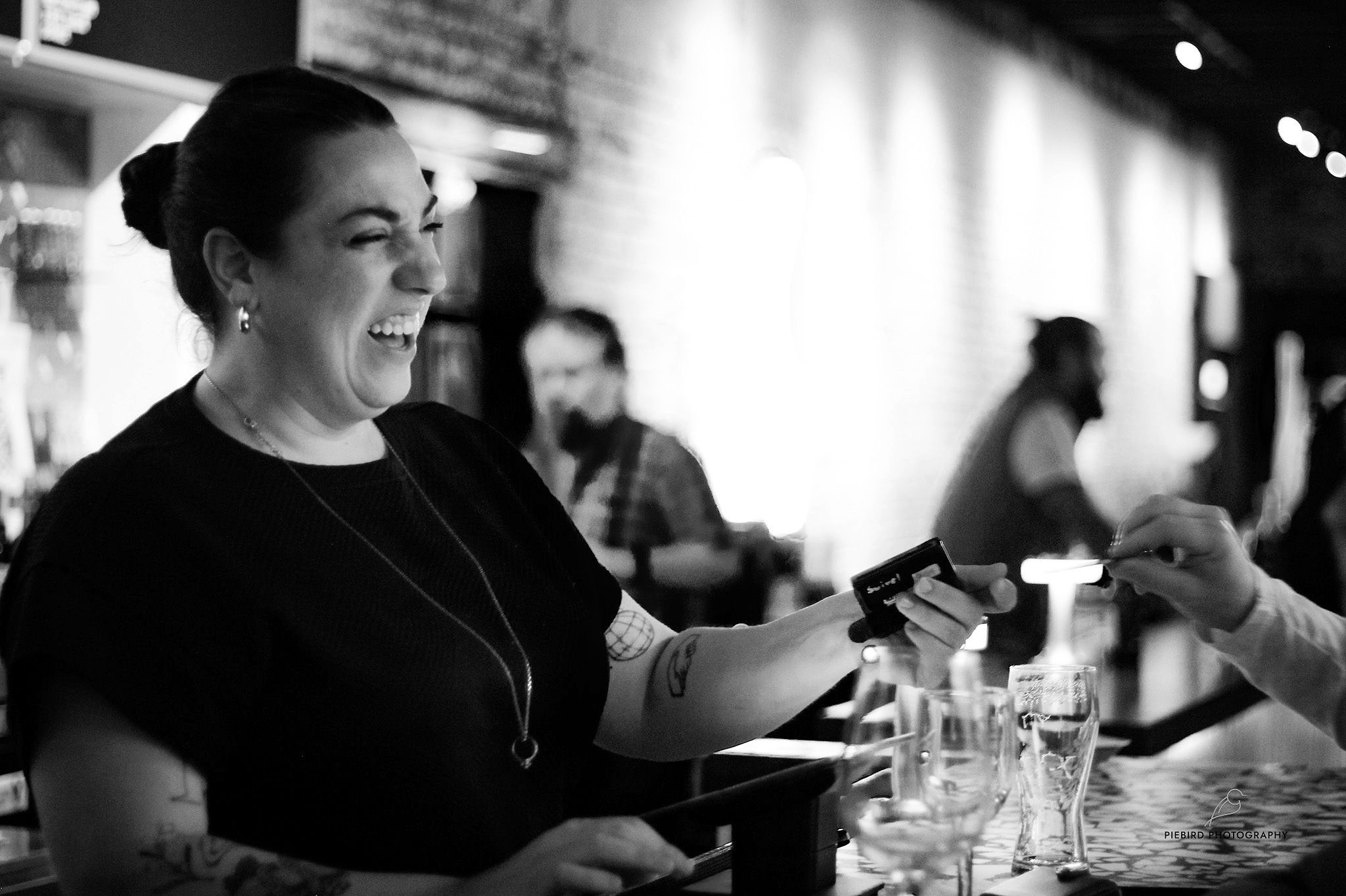We caught up with the brilliant and insightful Lauren VanCleave a few weeks ago and have shared our conversation below.
Lauren, thanks for taking the time to share your stories with us today We’d love to hear your thoughts about family businesses.
More Than a Business: What Family, Community, and a Tornado Taught Me About Hospitality
I come from a long line of family business owners. My great-grandparents, grandparents, and parents all ran small businesses that did more than just make a living—they made a life. And not just for our family, but for the communities they served.
Our restaurants and bars were never just places to eat or drink. They were where people went to celebrate, grieve, reconnect, and reset. First jobs. First dates. Graduations. Engagements. Divorces. Funerals. You name the life event—chances are, someone in town walked through our doors for it.
That’s the thing about hospitality: it touches every important moment in a person’s life. At its best, it creates spaces where people feel safe, seen, and connected.
“Just open the doors.”
There’s one story that sums this up for me more than any other.
Years ago, a tornado tore through our town. It destroyed homes, businesses—entire neighborhoods. In the immediate aftermath, people didn’t know where to go. But they showed up at our restaurant. No one had called them. No one had posted about it online. They just knew.
Because that’s what my parents always did: they opened the doors. No matter the weather, the holiday, or the crisis—our place was open. That was their philosophy of hospitality. You show up for your people. When that tornado hit, our restaurant became a refuge. People found their loved ones there. They cried, hugged, shared meals, and made plans for what came next. It wasn’t about food. It was about being home.
That moment is seared into me. Not because it was extraordinary, but because it wasn’t. It was the natural result of decades of showing up.
Lessons from a Lifetime of Family Business:
Growing up in that environment taught me how business really works—not just from the customer-facing side, but from the inside. I learned how to solve problems in real time, how to take feedback seriously, and how to build something that evolves with its community. I also learned what happens when you don’t.
One of the biggest pitfalls I’ve seen—one I’ve had to work through myself—is the trap of working too much in the business and not enough on it. When you’re an operator by nature, you’re often consumed by the day-to-day. You can dream of what’s possible, but feel constantly constrained by what’s urgent. And on the flip side, if you only dream—if you don’t build systems for feedback, profitability, and team development—you’ll end up trapped by the very business you hoped would give you freedom.
When the money isn’t managed, when the time isn’t protected, when there’s no plan beyond survival—the business starts running you. And when it fails, it feels like a surprise. But it’s not. It’s just a lack of structure, hidden behind effort.
A Legacy I Hope to Pass On:
Now, as a small business owner myself, I carry all of that forward. And I want my children to experience it too—not because I expect them to take over, but because I want them to see what it takes to build something meaningful.
I want them to understand that success isn’t just about a good idea—it’s about consistent execution. It’s about knowing that when you put your energy into one thing, something else might have to wait. That’s not failure. That’s life.
I want them to know the value of work, not allowance. To feel the pride of bringing something to life with their own hands. I want them to grow up in a world where it’s normal to see their mom run a business. Where it’s never a question whether their friend, their wife, their sister—or they themselves—can lead.
The Heart of It:
What I’ve learned from a lifetime of family business is that when you do it right, you’re not just building a company. You’re shaping lives. You’re supporting a community. You’re creating a space that holds people during their best and worst moments—and if you’re lucky, it outlasts you.
You open the doors, and you say: We’re here.
That’s hospitality. That’s legacy. That’s the kind of business I believe in.
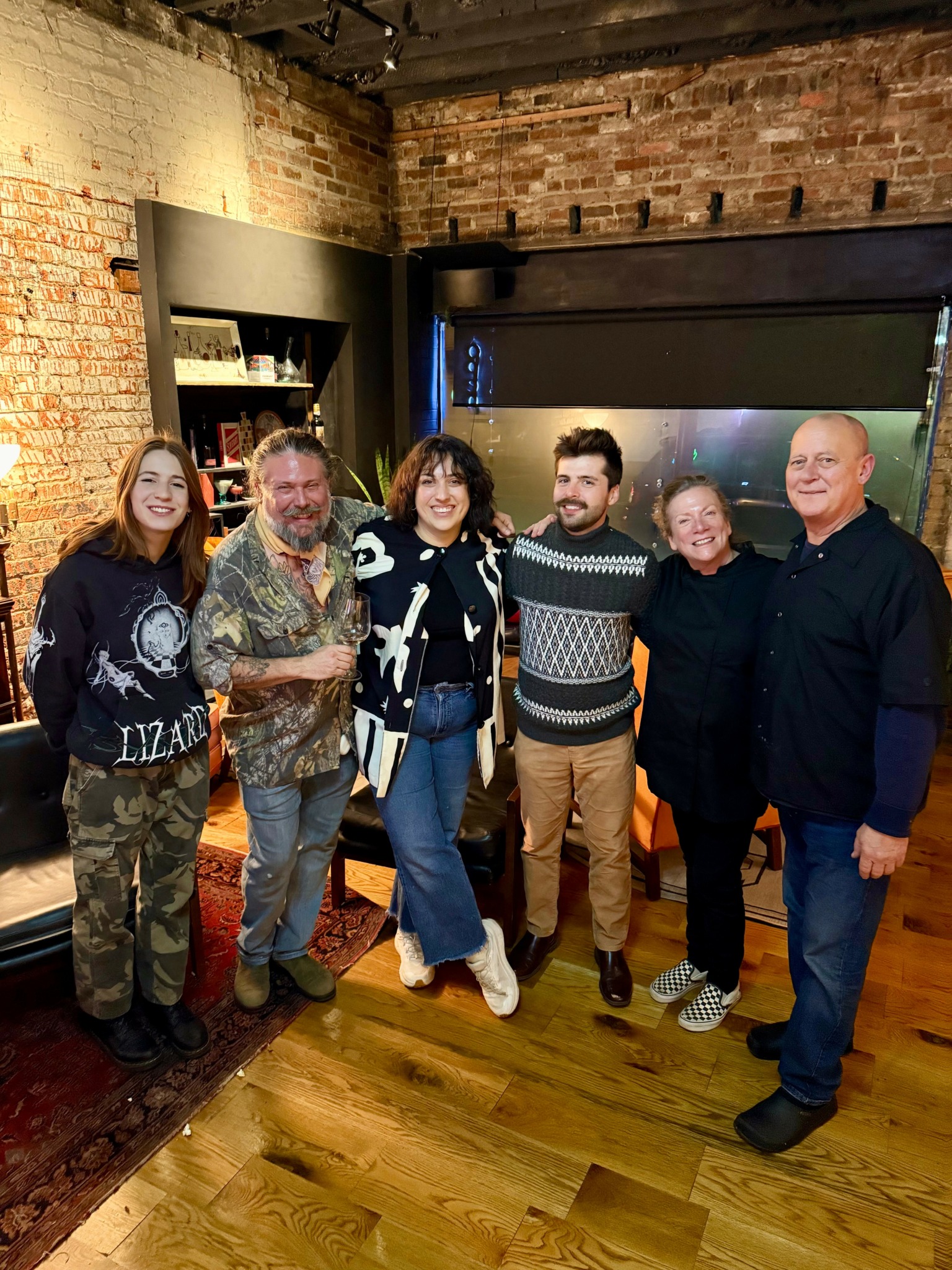
Lauren, love having you share your insights with us. Before we ask you more questions, maybe you can take a moment to introduce yourself to our readers who might have missed our earlier conversations?
Hi, I’m Lauren VanCleave—a lifelong believer in the power of place, people, and a well-poured glass of wine.
I come from a multigenerational family of entrepreneurs, so you could say business is in my bones. I grew up in and around restaurants, learning early that hospitality is about much more than service—it’s about showing up. That foundation has shaped every chapter of my career, from working with Broadway productions in New York to opening my own ventures in Southern Indiana and Louisville, Kentucky.
Today, I run several community-centered businesses that live at the intersection of hospitality, creativity, and local culture. I co-own Wine Shop, a cheeky little bar and bottle shop in downtown New Albany that curates good wine, good food, and good vibes. I’m also the General Manager of Mashup Food Hall—a bold, 20,000-square-foot culinary hub and coworking space in Louisville that champions food entrepreneurs, local artists, and creative collaboration.
Through these projects, I help solve real-world problems for early-stage business owners: access to space, audience, capital, and support. My work creates platforms for others to grow, connect, and thrive—with a heavy emphasis on thoughtful design, community storytelling, and operational strategy that works in real life (not just on paper).
What sets me apart is that I understand both the creative and the practical sides of running a business. I’ve mopped the floors and written the brand guide. I love building something from scratch—but I also care deeply about how it works day-to-day, and how it makes people feel when they walk through the door.
I’m most proud of the spaces I’ve helped build that make people feel like they belong. Whether that’s through a thoughtfully curated wine selection, a welcoming coworking table, or a vendor getting their first shot at brick-and-mortar—my work is always about creating room for others to show up fully.
If you’re someone who believes in community over competition, in building businesses that reflect real people, and in mixing heart with hustle—then we’ll probably get along just fine.
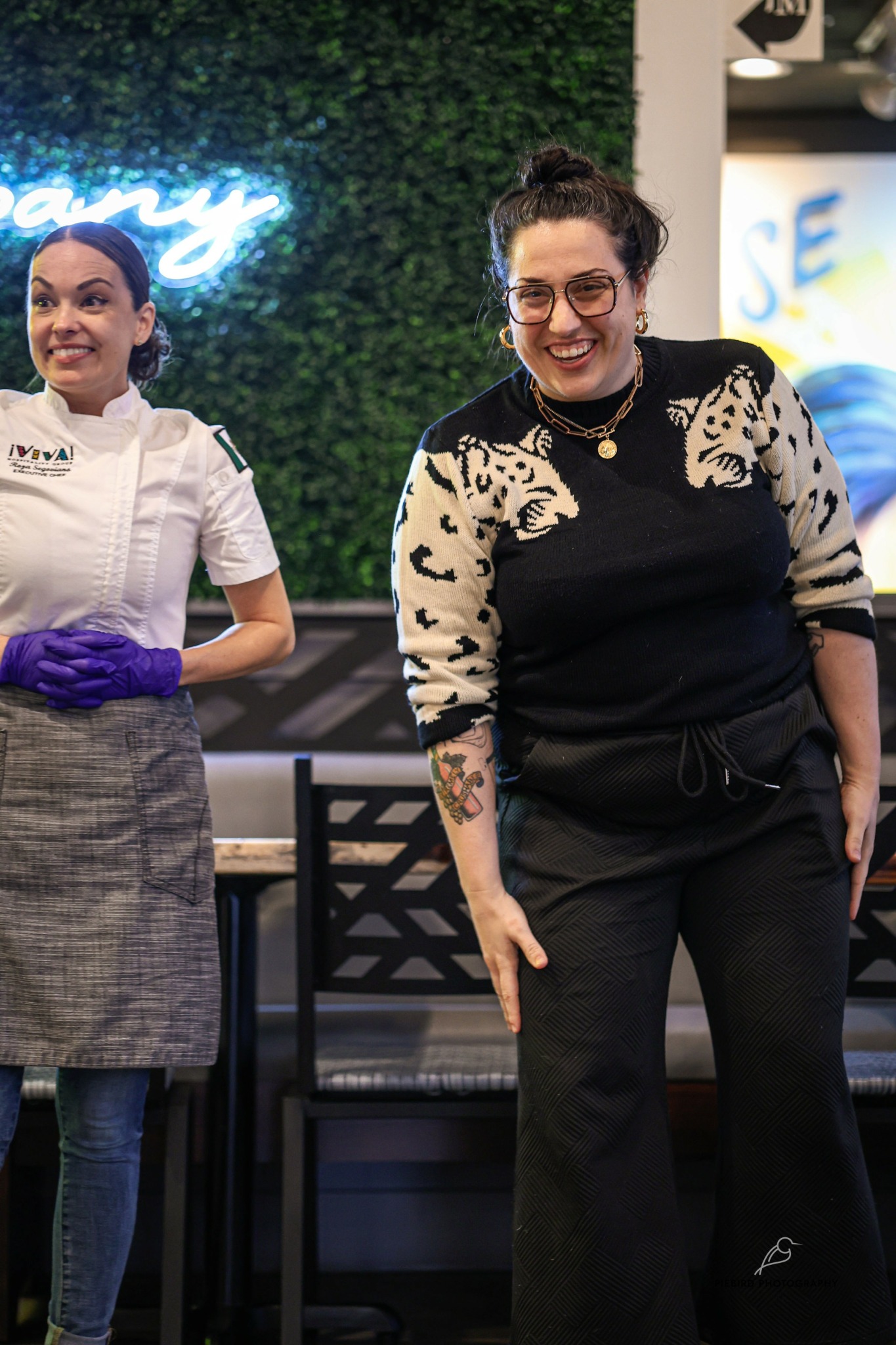
Can you open up about how you funded your business?
My entrepreneurial starting point was undeniably privileged: I had a supportive family, a stable job, and more than 30 years of deep community connection. That’s already more than many women—especially women without generational wealth or access to networks—start with. I believe it’s important to name that.
That said, even with those advantages, securing funding was incredibly difficult. More than once, I had male bankers ask me if I had a “rich daddy” who could cosign my business loan. I walked into meetings where questions were directed to my male business partner instead of me, despite the fact that I was leading the vision and operations. It was frustrating, but not surprising. I’ve spent over 15 years in entrepreneurship, so I had thick skin—and I had the experience and credibility to keep pushing.
We were intentional from the start about building lean. Instead of going after huge capital to launch a business at full scale, we opened with what we needed to make an impact and created room to grow from there. We knew the space would evolve, and we wanted to learn in real time from our audience—what they responded to, what they needed, and what would create sustainable momentum. That strategy allowed us to raise and use our initial capital more thoughtfully and avoid unnecessary overbuild or debt.
In the end, we cobbled together a mix of small local community based loans, personal investment, and a whole lot of sweat equity. It wasn’t glamorous—but it was honest, strategic, and grounded in the belief that building something meaningful takes time and adaptability.
What excites me most now is the growing ecosystem of women supporting women in business. More founders are sharing real stories—not just the highlight reels. We’re mentoring each other in negotiation, financing, and scaling in ways that feel right for us. That kind of connection is powerful, and I’m proud to be part of it.
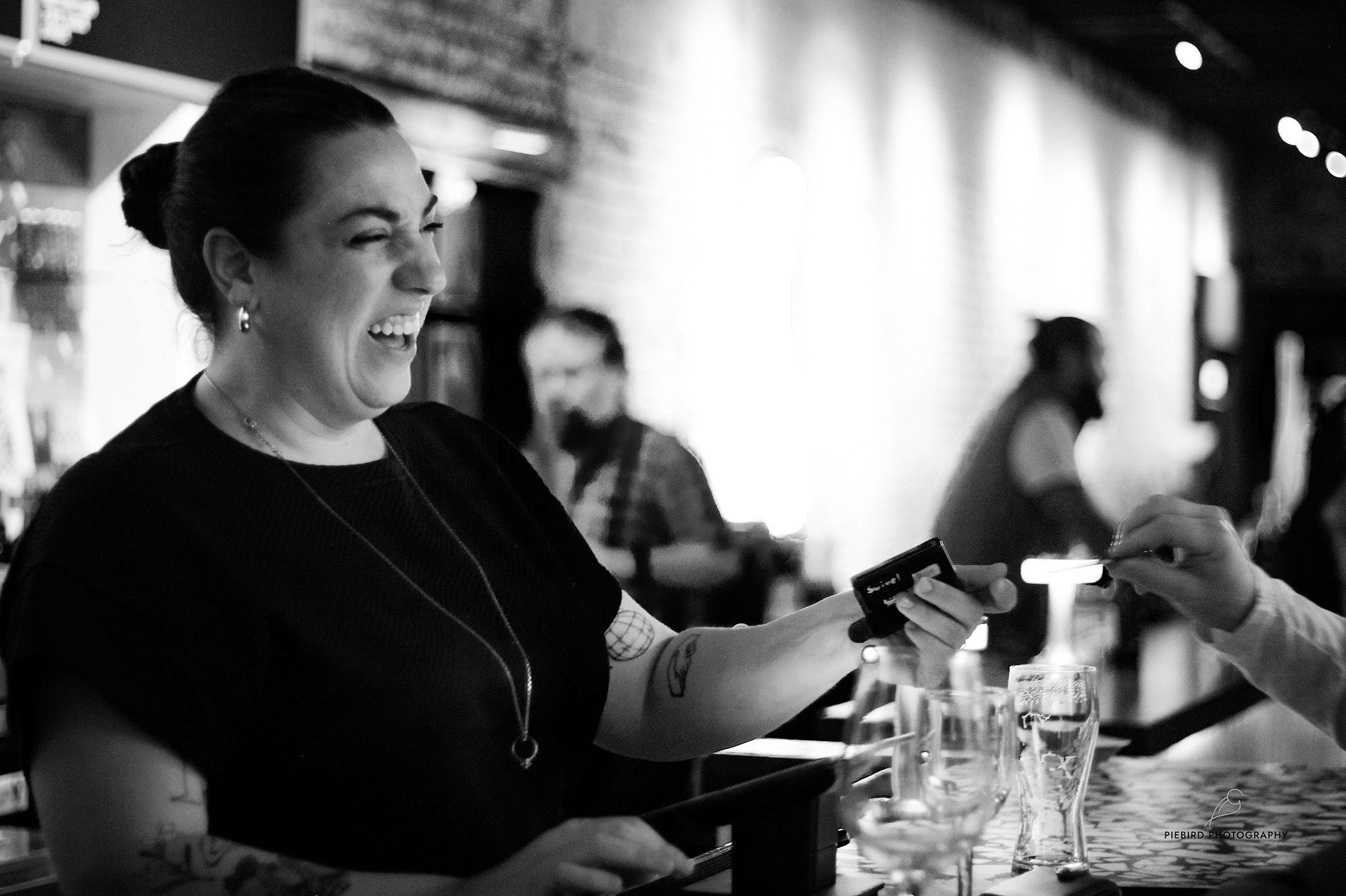
How about pivoting – can you share the story of a time you’ve had to pivot?
I’ve pivoted so many times I could be a dancer. But if there’s been one constant through every twist and turn, it’s hospitality—the belief that creating spaces where people feel seen and connected matters deeply.
My first big dream was theater. I moved to New York City and landed what I thought was the dream job: working for the producers of Wicked. I was young, hungry, and sure I was on my way. But the reality? I was an unpaid intern with a bar job on the side just to make rent—and I found myself enjoying the bar more. That was my first real pivot. When the 2008 recession hit and theater budgets shrank, I realized that being a degree-less 22-year-old wasn’t going to get me far. I found myself asking: Isn’t this dream job supposed to feel better than this?
So I moved home, finished college, and kept working—consulting with small businesses on how to make their bar programs more profitable and efficient. I picked up more and more clients, building a business that was almost too big to manage alone. Then I got pregnant. Pivot again.
I kept consulting through that time, including national brand activations with spirits companies, and then got pregnant with my second child. That’s when I shifted again—this time into building and operating a coworking community from the ground up. I eventually became CEO. That was the title I thought I always wanted. But four years, a global pandemic, and a lot of fire-fighting later, I had another moment: Isn’t this dream job supposed to feel better?
When the owner of the company casually mentioned I might need to start thinking about a Plan B, I realized that I already had one—it just needed a little courage and clarity. I started thinking about what made me feel alive, not just accomplished. And it always came back to this: building community through hospitality.
So I pivoted again. I went into business with people I love—my family—and created something small, rooted, and deeply connected to our community. I stopped chasing dream titles and started building dream experiences. I haven’t asked “is this supposed to feel better?” since. Because it does. It feels right. It feels like home.
Contact Info:
- Website: https://www.wineshopnewalbany.com
- Instagram: @wine_shop_na
- Facebook: https://www.facebook.com/wineshopnewalbany
- Linkedin: https://www.linkedin.com/in/lauren-vancleave-a14973a/
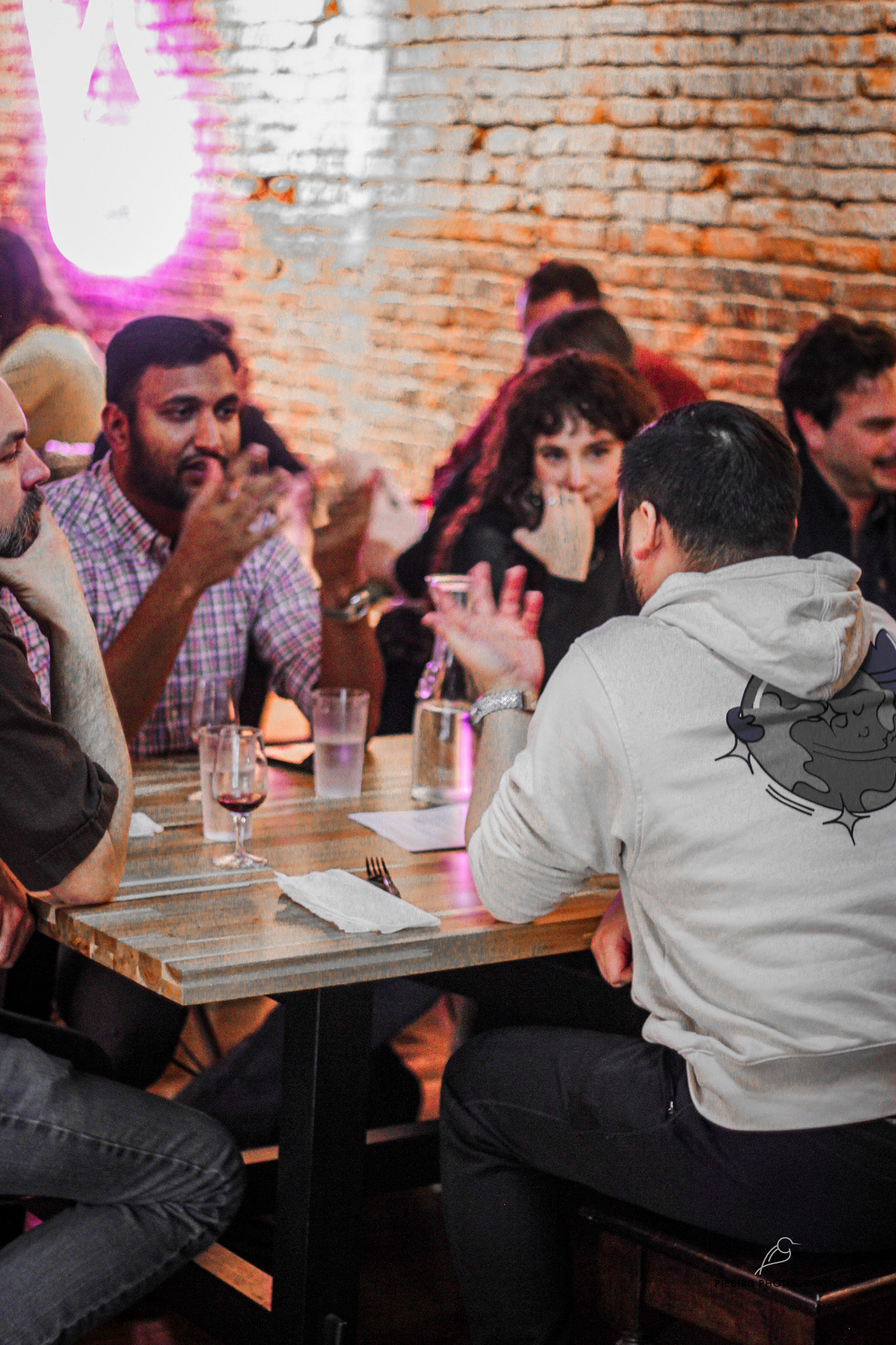
Image Credits
Robin Nance Photography


